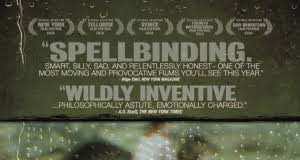 At first, Joachim Trier’s Oslo, August 31st might feel like an indulgent, meandering film filled with chatty people who cannot stop saying the obvious or repeating themselves. But look below the surface, and its brilliance creeps up on you. Superficially, the film offers a minimalist day-in-the-life portrait of a recovering drug addict at a crossroads. But this film is about so much more. This is a meditation on losing the past and the fleeting opportunities life constantly hands you to change the future.
At first, Joachim Trier’s Oslo, August 31st might feel like an indulgent, meandering film filled with chatty people who cannot stop saying the obvious or repeating themselves. But look below the surface, and its brilliance creeps up on you. Superficially, the film offers a minimalist day-in-the-life portrait of a recovering drug addict at a crossroads. But this film is about so much more. This is a meditation on losing the past and the fleeting opportunities life constantly hands you to change the future.
It opens with a scenic montage of Oslo featuring the voices of people sharing memories of the capital city of Norway. They recollect specific days in the city and the significance of those memories. As the voices change from male to female, young person to elder, scenes shot in the streets of Oslo unfold. The grain of the images and the framing reveal them as coming from various sources. Sometimes the streets are empty, sometimes they are alive with people and activity. It all ends in the collapse of a building. A camera attached to the structure gives us a rubble-in-progress view of the event. A fine bit of symbolic foreshadowing by the director who does not waste a moment’s time in characterizing Oslo, August 31st‘s protagonist.
On Aug. 30, Anders (Anders Danielsen Lie) is released for a day on his own recognizance from a rehab facility.  That morning, he tries to commit suicide by drowning himself in a lake. Though his attempt results in failure, it looms like a foreboding cloud over the rest of the “action.” He returns to the rehab home, soaking wet, showers and heads out on his own.
That morning, he tries to commit suicide by drowning himself in a lake. Though his attempt results in failure, it looms like a foreboding cloud over the rest of the “action.” He returns to the rehab home, soaking wet, showers and heads out on his own.
He first pays a visit to a friend now raising a child, Thomas (Hans Olav Brenner). This meeting sets up Anders’ history via dialogue that carries on for almost 20 minutes, but it also reveals the film’s strategy. Oslo, August 31st seems obsessed with dialogue, the reactions statements illicit and the variations of possible actions as result of suggestion. It seems repetitive at first, but Anders is being handed opportunities. He can choose to interpret them how he will, but it always seems to be toward a grim self-fulfilling prophecy. He and Thomas talk at a table, in a room, on a bench, out on the street. There is a constant play in the dialogue where Anders seems to hear and say the wrong things that only leads him down that same hole he crawled out from.
This becomes more vivid during a job interview, which comes to an abrupt end and marks the true turn down the dark path leading Anders to his fate. After a nap in the park, Anders heads into the night for parties and encounters with women. But Anders always seems alone.  During an early scene, the director sets up that fact when Anders sits by himself at a cafe. He listens in on conversations by fellow patrons that reveal dilemmas, hopes, dreams and plans. It’s a smart setup leaving one to wonder, once again, about the possible fate of our hero.
During an early scene, the director sets up that fact when Anders sits by himself at a cafe. He listens in on conversations by fellow patrons that reveal dilemmas, hopes, dreams and plans. It’s a smart setup leaving one to wonder, once again, about the possible fate of our hero.
The film ends affirming all of Anders’ decisions that came before. It is far from a cop-out. It is also at this point, that the film’s cold, washed out quality shifts. A color saturation unseen until now reveals some of the film’s most gorgeous shots: Oslo, Norway looking beautiful and lush in the summertime.
Trier first gained notoriety about five years ago as the director behind the fast-paced Reprise, also featuring Lie in a leading role. The film had a much brisker pace, became a festival hit and brought some rare attention to Norway’s film industry. It took many years, but the pair have returned with a more intimate, subtle film that should remind audiences of Trier’s ingenious command of the cinematic language.
Oslo, August 31st reminds us that we are all responsible for our own fates. We make the choices we make because of what we see in the opportunities handed to us. Do not be fooled by the film’s chatty nature, as it is more about the gaps in the conversation than what is said, and it’s a brilliant thing to watch unfold.
Watch the film’s trailer:
Oslo, August 31st is not rated, runs 95 min. and is in Norwegian with English subtitles. Strand Releasing provided a preview screener for the purposes of this review. It opens in South Florida on Friday, July 27, at the Miami Beach Cinematheque and the University of Miami’s Cosford Cinema.










